The 2023 Bush Fellows include 24 individuals with diverse backgrounds, who strive to make the world a better place and share qualities of “bold vision and leadership”
In June of 2023, the Bush Foundation, which works to support accomplished leaders who strive for significant impact in their prospective communities, announced a selection of twenty-four individuals “whose bold vision and leadership are shaping communities in Minnesota, North Dakota, South Dakota and the twenty-three Native nations that share the same geography.”
The Bush Foundation, created by Archie and Edyth Bush in 1953, supports accomplished leaders to “take their leadership to the next level.” More than 2,000 visionaries have received support over the past sixty years.
Among the twenty-four individuals selected in this year’s fellowships, were seven Native American visionaries working to make their communities a better place.
These seven individuals are Leslie Harper from the Leech Lake Band of Ojibwe; Hillary Kempenich from the Turtle Mountain Band of Chippewa; Tasha Peltier, Hunkpapa Lakota, from the Standing Rock Nation; Shanda Poitra, Anishinaabe/Ojibwe Turtle Mountain Band of Chippewa; Joseph Williams who is Sisseton Wahpeton Oyate; Agnes Yellow Bear from the Kawacatoose First Nation; and Marie Zephier, from the Oglala Lakota Nation.
Hillary Kempenich, an Anishinaabe artist, storyteller, and knowledge keeper, told Native Viewpoint, “I am honored, humbled, and excited in this next step of my journey through the support of the Bush Foundation. There is already much to reflect on, although the Bush Fellowship begins in August. I am eager to begin courses at Harvard and to further connections within Indigenous spaces, as I work toward helping amplify voices within communities. My goal is to be an agent of change, furthering cultural work, ensuring prosperity & wellness, and strengthening social and cultural capital.”
Shanda Poitra, who is Anishinaabe/Ojibwe Turtle Mountain Band of Chippewa and a nationally recognized leader of the first Indigenous-led IMPACT self-defense program, said to Native Viewpoint in an email that she was looking forward to her opportunities as a selected Bush fellow.
“This is an amazing opportunity, and I feel incredibly honored to be selected as a Bush Fellow! My plans include activities that will build on my leadership skills, like attending school for my bachelor’s degree in Ogimaawiwin (Leadership) and Management and traveling to other IMPACT chapters to learn and share knowledge in violence prevention. This education will provide the tools I need to manage my program better, tilted Turtle Mountain IMPACT: Empowerment Self-Defense.”
Agnes Yellow Bear, who is Kawacatoose First Nation and a national advocate for initiatives focused on murdered and missing Indigenous women, girls, and two-spirit people, said of her Bush fellowship, “I am truly honored and filled with gratitude for being chosen as a Bush Fellow, especially as an Indigenous woman with a lineage of strong matriarchs who have made a difference as grassroots leaders. This opportunity validates my journey and inspires me to seek new avenues for growth. Moving forward, I am committed to utilizing this fellowship to access influential platforms, amplify my voice, enhance my leadership skills, and advocate passionately for my community.”
In addition, Leslie Harper, Leech Lake Band of Ojibwe, a Native language advisor who has built an immersion school, will work to connect with other Native community leaders to increase Native language revitalization.
Marie Zephier, from the Oglala Lakota Nation, is a doctoral candidate in Indigenous health who will work to complete her Ph.D. and work to build ways to integrate “Indigenous culture into the research and practices of Western health systems” as a way to “build trust, increase access to cultural healing methods, and alleviate health inequities.”
Tasha Peltier from the Standing Rock Nation and co-executive director of the Mni Wichoni Health Circle, will be fostering efforts to bridge the worlds of Western medicine and Indigenous culture, and Joseph Williams, who is Sisseton Wahpeton Oyate and the Director of Native American Programs at Plains Art Museum, wants his region in Fargo, ND to be a national hub for Native American arts and culture, “where engaging exhibitions, workshops, and convenings inspire connection and conversation.”
According to the foundation’s vice president of grantmaking for the Bush Foundation, Anita Patel, “Each of this year’s Fellows has already made vital contributions to their communities … The Bush Fellowship is an investment in their potential to lead even greater change in the future so that our region works better for everyone.”
According to the Bush Foundation press announcement, the Foundation will accept applications for the 2024 Bush Fellowship beginning August 22, 2023. The Bush Fellowship is open to anyone aged 24 years and older who has a track record of leading change and seeks to build the ability to have an even greater impact. Applicants must live in Minnesota, North Dakota, South Dakota or one of the 23 Native nations that share the same geography.
The seven Native Bush Fellows and the additional seventeen awardees are listed below.
2023 Native Bush Fellows
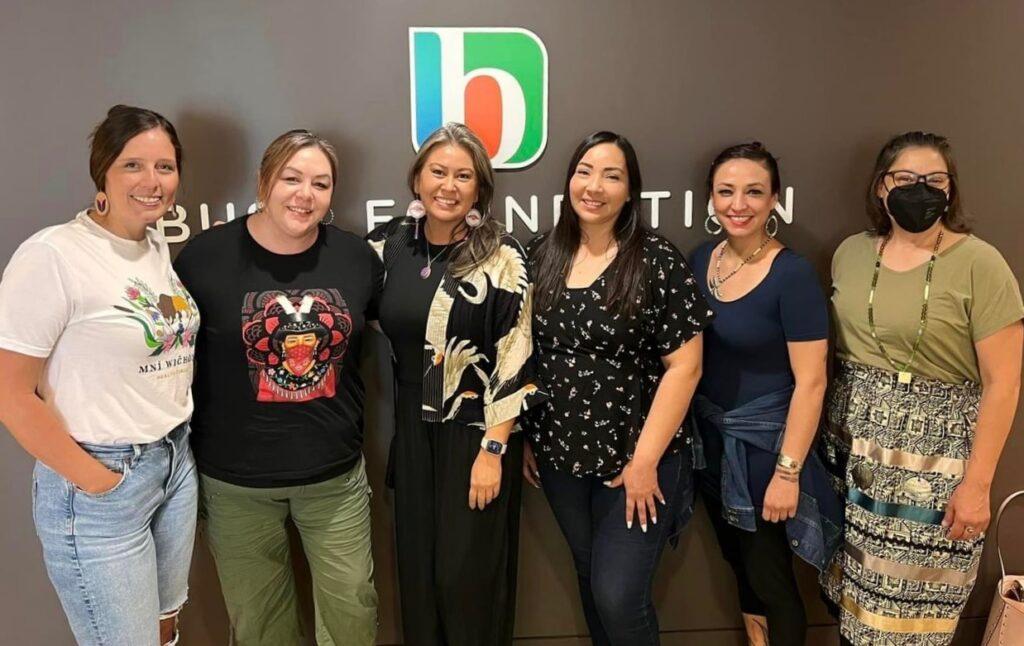
LESLIE HARPER | Cass Lake, MN | Leech Lake Band of Ojibwe
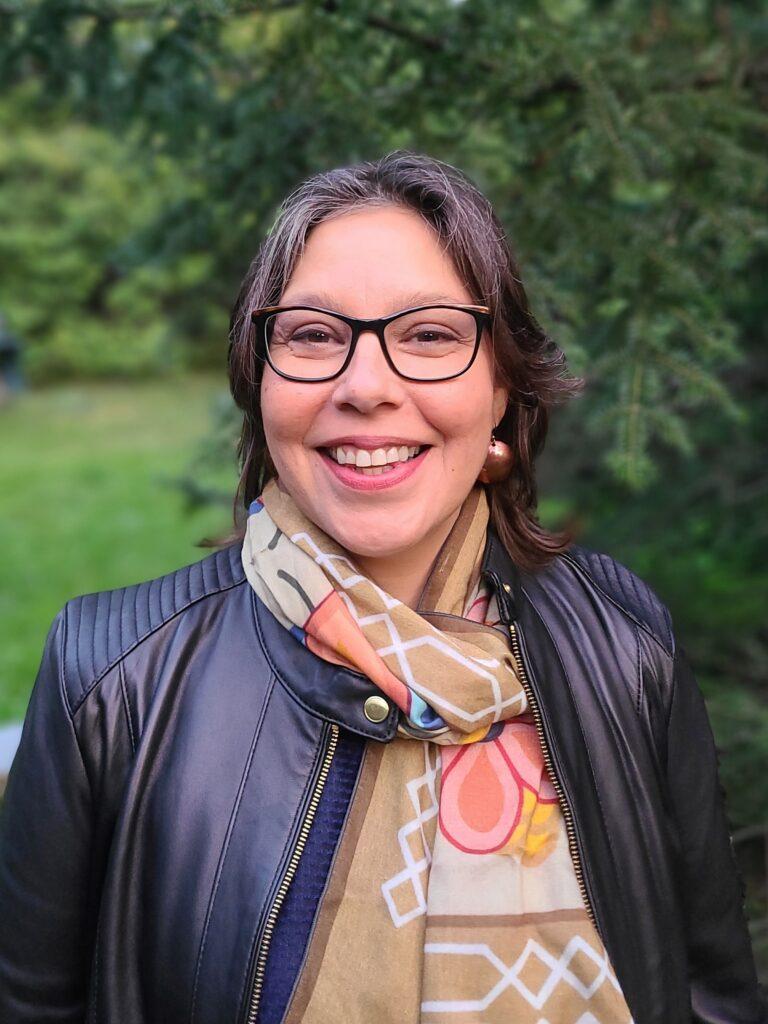
Leslie Harper is determined to help Tribal communities create their own futures. Raised by parents who instilled the values of sovereignty and self-determination, she believes that priorities and decisions must be determined from within a community, not from an outside entity. A Native American language revitalizer, she has built an immersion school and led national efforts to ensure the rights of Indigenous students and families in immersion settings. She wants to build hope and optimism by helping Native communities articulate their own culturally appropriate outcomes, approaches, and evaluation measures. During her Fellowship, she will seek mentoring and build the facilitation skills she needs to mobilize her community and prepare others to lead. She will also travel to other language revitalization sites to connect with leaders engaged in language reclamation. She will maintain energy for her work through regenerative rest and ceremonial participation.
HILLARY KEMPENICH | Grand Forks, ND | Turtle Mountain Band of Chippewa
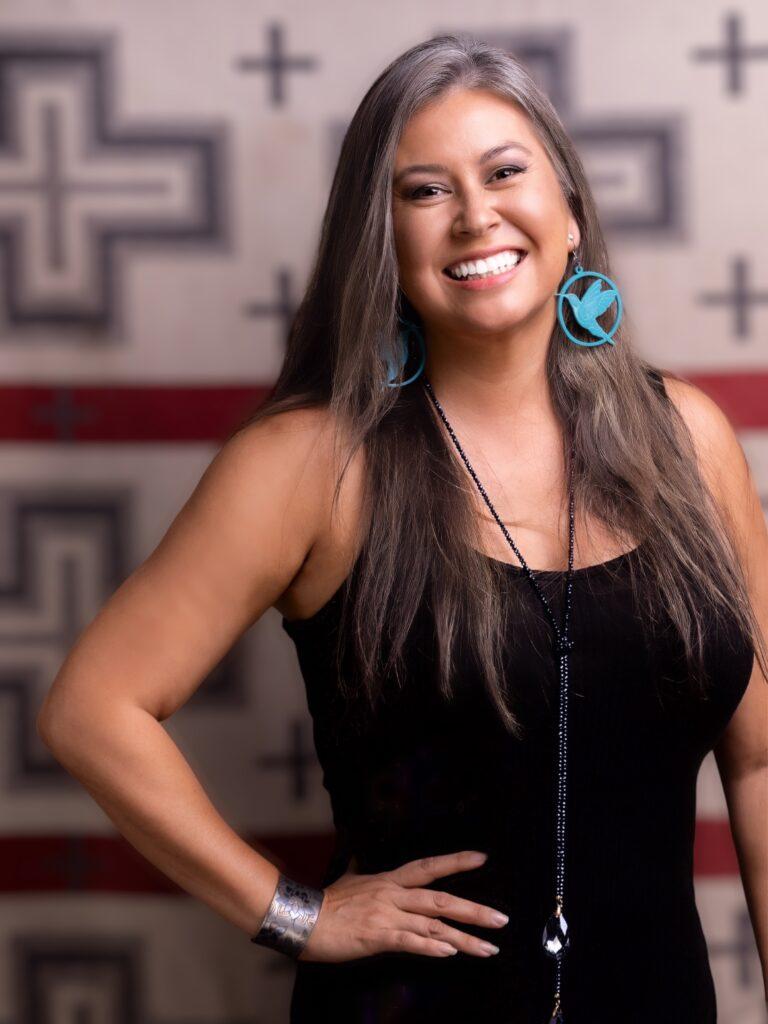
Hillary Kempenich is an Anishinaabe artist, storyteller, and knowledge keeper who facilitates healing and opportunity through the arts. She is an agent of change, passionate about making places such as libraries and museums more accessible. She has long advocated for the well-being and rights of Native youth in educational settings. Now, as a leader in creating a STEAM (Science, Technology, Engineering, Arts and Mathematics) museum, she is determined to infuse authentic reconciliation, repatriation, and decolonization practices into planning and programming. To gain the knowledge and skills to lead this work, she will seek mentorship with fellow knowledge-keepers to ensure cultural survival and visibility. She also will pursue additional education in museum studies and STEAM. She will balance her studies with time devoted to reflection and reconnection to Indigenous spaces.
TASHA PELTIER | Mobridge, SD | Hunkpapa Lakota, Standing Rock Nation
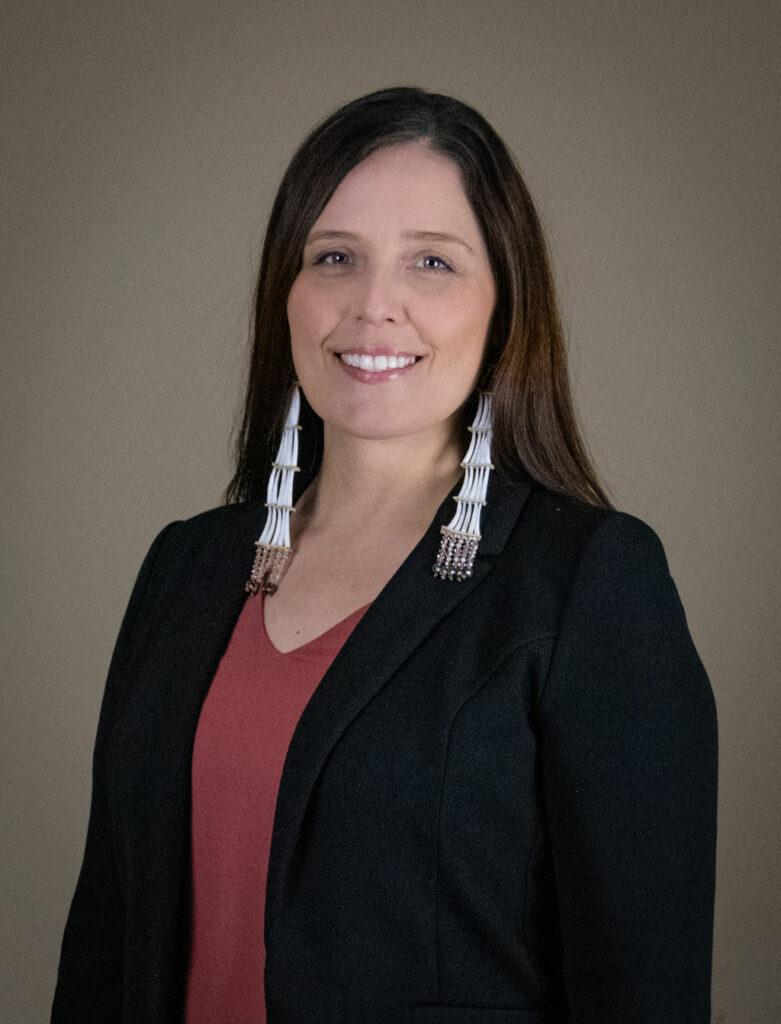
Tasha Peltier is on a mission to help Indigenous communities reclaim their health and wellness. She wants to start with her homeland, the Standing Rock Nation. She seeks to find ways to center healing and wellbeing around Dakota/Lakota values and ways of thinking, and to utilize the valuable knowledge that exists within communities to improve overall health. As co-executive director of the Mni Wichoni Health Circle, she has centered health and wellness around traditional ceremonies and teachings, helping create a new vision for her community. With the belief that Indigenous people need to create their own systems, not adapt to non-Native systems, she seeks to bridge the worlds of Western medicine and Indigenous culture. She understands this vision will require discussions that she must be prepared to lead. During her Fellowship, she will build her skills to facilitate complex conversations and to draw out new ideas and solutions from her community. She also will travel to and study other Indigenous communities that have built successful, culturally responsive systems of care.
SHANDA POITRA | Belcourt, ND | Anishinaabe/Ojibwe Turtle Mountain Band of Chippewa
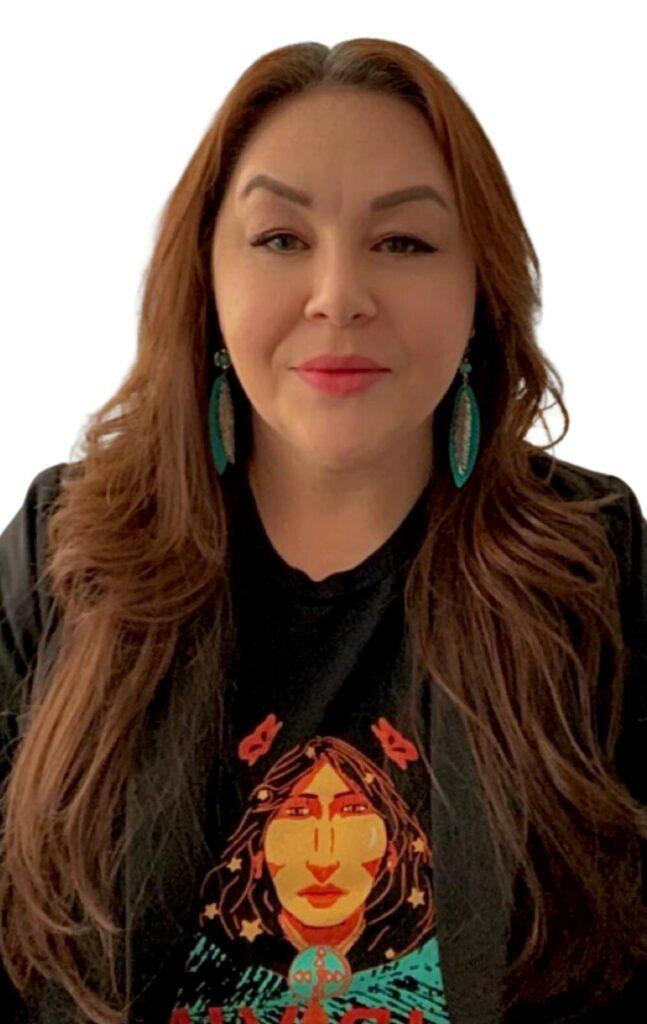
Shanda Poitra wants to create a culture where Indigenous people see safe and healthy relationships as the norm. She found her calling when she took a self-defense course in college. Empowered by that experience, she has made it her life’s work to teach Native women and girls that they deserve to be safe and to help them develop tools to protect and advocate for themselves. A nationally recognized leader of the first Indigenous-led IMPACT self-defense program, she is bringing the program she adapted for her Turtle Mountain community to a growing number of tribes and Native organizations. To leverage her experience and become more effective at designing and leading abuse prevention and survivor healing throughout Indian country, she will pursue a degree in Ogimaawiwin (leadership) and management. She also will travel to meet with and learn from leaders of other abuse prevention organizations throughout the country.
JOSEPH WILLIAMS | Fargo, ND | Sisseton Wahpeton Oyate
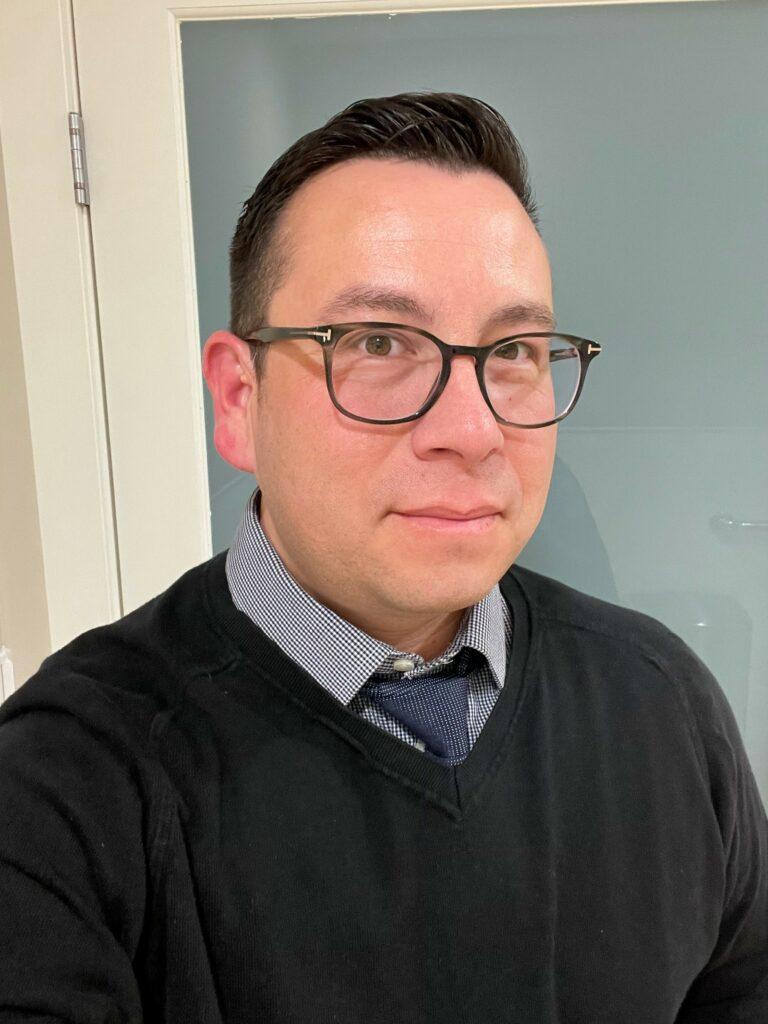
Joseph Williams wants his region to be a national hub for Native American arts and culture, where engaging exhibitions, workshops, and convenings inspire connection and conversation. As Director of Native American Programs at Plains Art Museum, he has created summer programs for Native students and a nationally recognized podcast, “5 Plain Questions,” focused on building understanding and awareness of Native American artists, musicians, writers, and cultural leaders. He seeks to create Native-led spaces for Indigenous people to communicate their worldviews in ways that are relatable and insightful. He believes this regional vision can create sustainable opportunities for Indigenous artists, creators, and culture bearers. His goal is to change the perception of Native American art from a niche to a valued part of the region’s identity. To achieve his vision, he seeks to engage and elevate diverse voices and perspectives and expand his knowledge of community engagement and Indian law.
AGNES YELLOW BEAR | New Town, ND | Kawacatoose First Nation
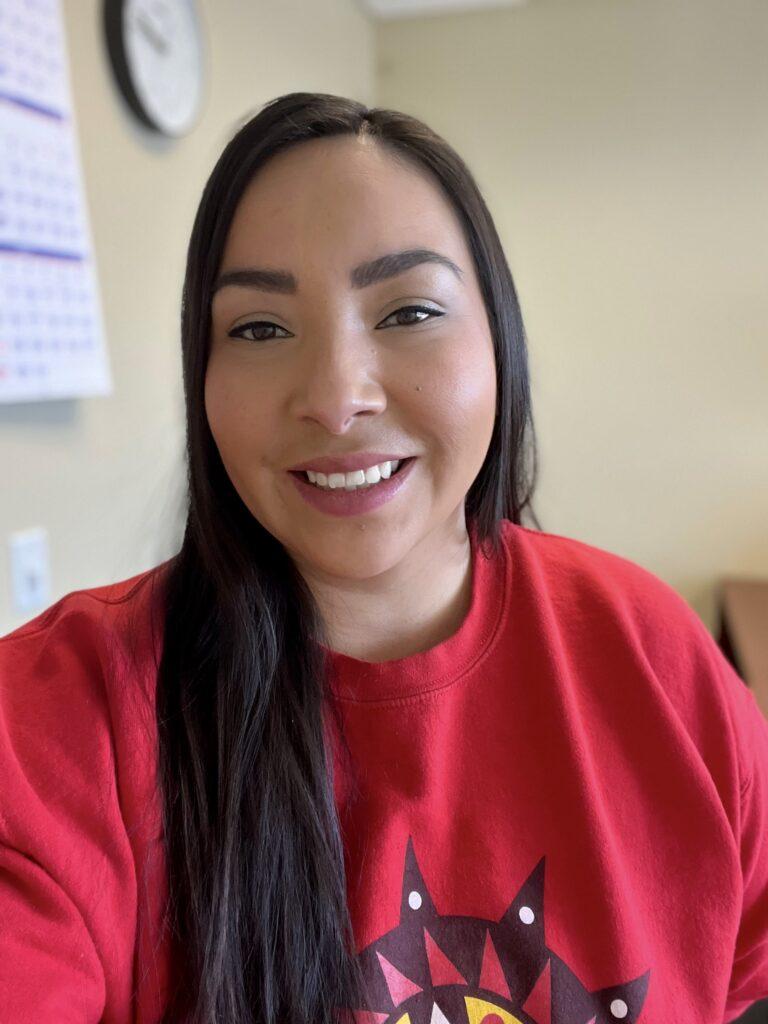
Agnes Yellow Bear wants families to be at the center of the movement to prevent violence against Indigenous Peoples. A national advocate for initiatives focused on murdered and missing Indigenous women, girls, and two-spirit people, she sees the exponential healing power when advocacy work prioritizes the voices and stories of families seeking justice for their murdered and missing loved ones. She knows that equality between women and men is critical to this work. Through Indigenous cultural approaches that are grounded in equality and justice, and by listening to those with lived experiences with violence, she seeks to promote healing for and empowerment of Indigenous Peoples. To build her capacity to lead, she will learn from mentors from around the world who are engaged in violence prevention. She also will pursue training in organizing techniques to inspire connection, collaboration, and problem-solving in her community.
MARIE ZEPHIER | Rapid City, SD | Oglala Lakota Nation
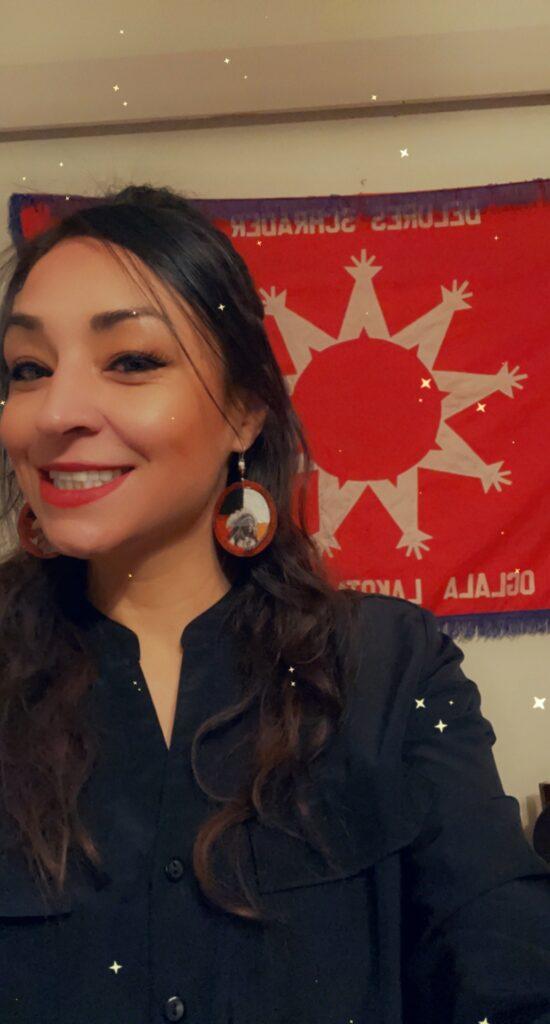
Marie Zephier is passionate about helping people heal by reconnecting to Indigenous ways. She wants Native people to have access to the healing she has found through culture. As a doctoral candidate in Indigenous health, she is focused on increasing respect for the value and impact of traditional practices. She has seen, in securing and managing millions of dollars in health grants, how Westernized models are inadequate to meet the needs of Indigenous people. She believes that integrating Indigenous culture into the research and practices of Western health systems can build trust, increase access to cultural healing methods, and alleviate health inequities. To lead this broad-scale change, she will complete her Ph.D., studying ways to use culturally informed data for advocacy and investment in cultural practices. She also will create intentional time to stay grounded in the Indigenous practices that have aided her addiction recovery journey.
The additional 2023 Bush Fellows
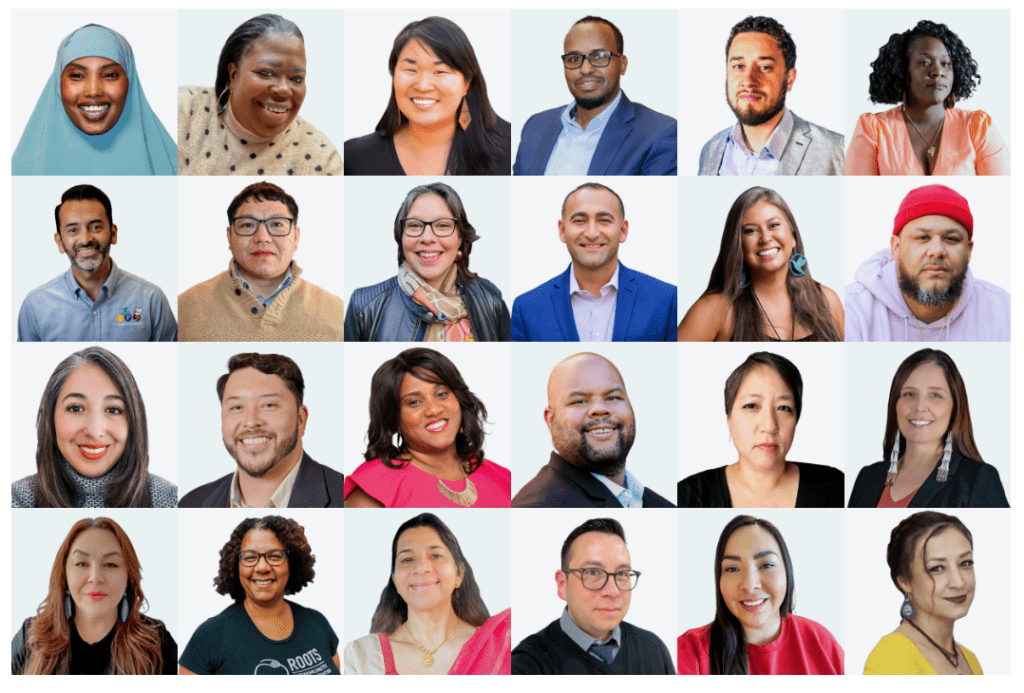
FARHIA BUDUL | Minneapolis, MN
Farhia Budul embraced her culture, community, and faith to achieve recovery. Her experience led her to develop culturally specific recovery support for her fellow East Africans in Minnesota. As one of the first Somali women in Minnesota to openly share her own story, she has become a source of hope and healing for dozens of people. She believes that while people may initiate sobriety in treatment, recovery happens and is sustained in the community. Having battled her own addiction, she understands the pain and isolation that can accompany substance use disorders. She also understands how a more compassionate and inclusive approach can help others facing similar struggles. With her Fellowship, Farhia will amplify her own story to create greater awareness of addiction, spread hope for recovery, and help eliminate stigma related to the disease. She will engage in transformative learning experiences, access valuable resources, and connect with a diverse network of experts and mentors.
WILLETTE ANITA CAPERS | Sioux Falls, SD
Willette Capers was told as a child that she was born to move mountains. That vision stayed with her and inspired her career choices. As assistant vice provost for diversity, equity, and inclusion at Augustana University, she sees how important it is to build social capital for people who have traditionally been excluded from opportunity. She created an award-winning diversity advocate certification program that has had a major impact on the University’s search committee and admissions decisions. She is passionate about helping people find their voice and providing places for them to connect, develop, and grow. She wants to build a sisterhood of support for women of color to help her region become more open and inclusive. To turn her vision into reality, Willette will seek further education and training in intercultural communication, organizational design, and conflict resolution. She will also take personal time to ensure she maintains energy for her movement-building work.
KATHERINE (KATIE) DACHTLER | Grand Forks, ND
Katherine (Katie) Dachtler is on a mission to build a more inclusive community in the Grand Forks area. A Korean adoptee in the predominantly white Upper Midwest, she understands first-hand what it is like to be considered an outsider, yet she also understands that belonging is foundational to her region’s sustainability and that strong communities are diverse communities. She wants to create a place of connection where all people can live freely and be fully included. With a long and successful track record of advocating for the inclusion of people whose voices are too often unheard, she is uniquely positioned to lead change. To grow her capacity to transform her region, she will pursue a Ph.D. in Change Leadership for Equity and Inclusion. Katie also will return to South Korea for the first time since she was adopted to explore how her story began and to understand better how identity shapes belonging and leadership.
ABDIRIZAK DIIS | Minneapolis, MN
Abdirizak Diis believes in the power of education to change lives. Born in a refugee camp in Somalia, then evacuated to Kenya when he was young; he faced daunting challenges to complete his primary, secondary, and post-secondary education. He understands the unique needs of immigrant children in the U.S. who start school with little preparation and significant language barriers. An educator in Minneapolis Public Schools, he created the first Somali ethnic studies curriculum in the country. He believes that the voices of immigrant families must be elevated in the educational system to reduce inequities. To accelerate his ability to lead change, he will pursue advanced education in curriculum development, public policy, adaptive leadership, and coalition building. He will also learn from entities that have developed approaches that improve educational outcomes for marginalized students.
OWEN DUCKWORTH | Minneapolis, MN
Owen Duckworth believes relationships are at the heart of change. A consensus builder, organizer, and artist, he seeks to eliminate the entrenched housing and wealth inequities in the region. From his leadership work with The Alliance and Equity in Place, he sees how relationships across disciplines can build trust and help groups solve seemingly insurmountable problems. His successful track record includes leading collaborative efforts on eviction moratoriums and rent stabilization. To achieve policy changes and investments in communities of color and low-wealth neighborhoods, he aims to support a stronger ecosystem of housing justice organizers, advocates, attorneys, and community leaders. During his Fellowship, he will increase his knowledge about housing policy, explore opportunities to pair his organizing work with his musical talents and take the time to reconnect to the places and cultures of his African and European immigrant parents.
NADINE TEBEH GRAVES | New Hope, MN
Nadine Graves knows that transformation happens when we listen to and learn from people’s lived experiences. Her own trauma-filled youth led to a criminal record at a young age, but after a rehabilitative process, she earned a bachelor’s degree in criminal justice and a law degree. Her experiences, and those of others who have been disenfranchised and dehumanized by the criminal justice system, inspired her to share her story and those of others through an acclaimed podcast and other platforms. She believes there is power and healing when people express their truth, and that storytelling can catalyze change. Her long history of working with and advocating for people whose voices are seldom heard includes serving as a Hennepin County public defender and deputy director of Community Legal Services for the Legal Rights Center. Nadine will pursue advanced training in social impact storytelling and connect with and learn from various individuals and organizations who use storytelling to shift narratives and concepts of justice.
OMAR GUEVARA SOTO | Minneapolis, MN
Omar Guevara Soto imagines a community where food is readily available to every family at home and in school. A leader in culinary services in Minneapolis Public Schools, he has helped mobilize a revolution in school food over the past decade. He is deeply committed to making fresh food accessible to students but also understands that the complex economic and psychological realities of families outside of school must be addressed if true food security is to be achieved. He wants to engage families, schools, multinational food corporations, nonprofits, funders, and faith communities to create policies and transform systems so no person goes hungry. To leverage his experience and lead change, Omar will learn from public and social sector leaders who successfully address barriers that cause hunger. He will also explore further training in entrepreneurship and leadership.
JANSSEN HANG | Newport, MN
Janssen Hang has a vision for a national network of Hmong farming businesses that build intergenerational and community wealth. As executive director of the Hmong American Farmers Association, he has led efforts to increase farmers’ earnings while doubling the size of his organization. Now he wants to help new generations turn hobby gardening into family businesses rooted in Hmong values. The son of farmers who immigrated to the U.S. from Laos, he witnessed the systemic barriers his parents faced in farming. He wants to eliminate those barriers, capture the cultural practices of aging Hmong farmers to benefit future generations, and build a new cooperative model. To lead this transformative change, Janssen will increase his proficiency in reading and writing Hmong, learn about how successful cooperatives are formed and sustained, and cultivate trusting relationships with Hmong farmers in the region.
HENRY JIMÉNEZ | Richfield, MN
Henry Jiménez is the proud son of immigrants who worked hard but faced systemic barriers to economic opportunity. As a child, he often was thrust into the role of negotiator and advocate for his Spanish-speaking parents. He learned early about the economic disparities people of color face and was driven to address the arbitrary barriers that lead to generational poverty. He sees a deep need for greater investment in cultural corridors and for communities of color to have more access to capital to purchase a home or start and expand businesses. As chief executive officer of the Latino Economic Development Center, he has led successful endeavors to build generational wealth. He wants to reimagine how financial products can build wealth, particularly for Latino, immigrant, and undocumented communities. With his Fellowship, he will seek mentorship from Latinx executives, enhance his Spanish language skills, and take time for rest and rejuvenation.
ALEXANDER LEONARD | Minneapolis, MN
Alexander Leonard knows personally the impact of systemic racism and trauma on individuals in the education system. He also knows it is possible to equip educators with embodied practices to build the endurance, stamina and discernment required to engage white body supremacy. As co-founder of the innovative Community Connected Academy at Patrick Henry High School in Minneapolis, he has seen the graduation rate soar to 99.8% in five years. Daily he witnesses the power of educators to inspire students, provide them with hope, and encourage them to become their best selves. He understands, though, that racialized trauma must be addressed to sustain Black and Brown teachers, who are essential to the success of Black and Brown students. He believes Somatic Abolitionist practices can help educators heal and enhance their capacity for change. To introduce somatic methods in education, he will seek mentorship and coaching, delve more deeply into the history of Black educator organizing, and form a collective of Black and Brown educators.
BLANCA MARTINEZ GAVINA | Minneapolis, MN
Blanca Martinez Gaviña questioned the poverty and other systemic barriers her family encountered coming to a country of abundance. She experienced the paradox of a progressive and financially healthy state with significant gaps for marginalized communities. She learned how policies can mark the direction of someone’s life and that those most impacted are seldom involved in the creation, process, and implementation. Her strong record of success includes co-leading negotiations to protect homeowners in Minnesota and developing solutions to address structural racism in the City of Richfield. She seeks to understand better how power is built and how it can be shared to shift policy outcomes that impact historically marginalized communities. She wants to develop tools to humanize policymaking and integrate ancestral wisdom. To build the capacity to lead large-scale change, she will pursue a Ph.D., seek mentorship from leaders of color, and root herself in the stories and culture of her ancestors.
JULIO MURPHY ZELAYA | Saint James, MN
Julio Murphy Zelaya dreams of a region with abundant prosperity and a legal system infused with humanity, restoration, and representation. As director of advocacy at the American Civil Liberties Union of Minnesota (ACLU), he is deeply rooted in the rural immigrant experience within the American judicial system and recognizes that those most impacted by laws are essential to creating a better legal ecosystem. In his ACLU role, he established a new model that merged impact litigation and community organizing to address unconstitutional immigrant detention in Minnesota. This model is now being used to address issues of policing and housing. To better understand collaborative models for change and how to increase civic engagement and community-based problem-solving, he seeks to bridge the worlds of organizing and law further. He will pursue a legal degree and a master’s degree in public policy to build the knowledge and experience to lead lasting change in his rural home. He will also identify ways to prioritize time for the reflection and rest he needs to sustain his energy and passion.
MIKISHA NATION | Minneapolis, MN
Mikisha Nation is on a mission to ensure that young people have greater power in the decisions that shape their lives. As executive director of Teach for America Twin Cities, she has led high-level change to build equity into the educational system. She believes in nurturing youth leadership as an influential force for the present and the future. Influenced by her Jamaican culture, she embraces the wisdom of youth perspectives and the invaluable exchange of knowledge across generations. She envisions an education system that is student-centered and community-informed, with an unwavering commitment to anti-racism. She is inspired by the rise in students mobilizing to address the most pressing issues affecting their communities. To effectively lead in this moment, she seeks to enhance her communication skills and storytelling abilities while immersing herself in the study of youth-led movements. After leading in education during a pandemic and a time of racial reckoning, she will prioritize time for rest and renewal.
NOEL NIX | St. Paul, MN
Noel Nix knows from experience that good intentions and ideas are not enough to create lasting change; meaningful action is also necessary. In his positions as a St. Paul City Council aide, Ramsey County Commissioner assistant, and now director of community initiatives for St. Paul Mayor Melvin Carter, he has advanced comprehensive approaches to community development. He sees that the work to create equitable community change within powerfully entrenched systems takes a tremendous toll on the mental health of people in public service, especially people of color. He believes that the push for changing these systems to work better for everyone is inextricably linked to the mental health of those leading the work. He seeks to equip himself with the knowledge and skills to integrate mental health practice into the public sector environment. He will pursue advanced education, build a network of mental health care practitioners who support transformational leaders, and study successful community-based mental health care models.
KIM PARK NELSON | Minneapolis, MN
Kim Park Nelson views labor unions as key pathways for creating racially equitable and inclusive communities. A Korean adoptee and professor of ethnic studies, she has contributed foundational scholarship to build the field of critical adoption studies. She also has led transformation in her own faculty union. She observes that while many unions want to increase diversity within their governance structure, they lack actional plans to do so. She wants to leverage her success in leading change to help people from marginalized backgrounds build power in all types of work settings. She believes cross-union coordination around shared racial equity goals can develop new leaders and opportunities. To realize this vision, she will study unions nationwide that have succeeded with racial justice transformation. She will also seek formal training in facilitation and intercultural mediation and mentoring from Asian American women and other leaders of color in unions.
REBECCA POLSTON | Hopkins, MN
Rebecca Polston is committed to improving Black maternal health care. She founded one of just five Black-owned, accredited birth centers in the country, creating an alternative, culturally based model to reduce health disparities and increase practitioners of color. The center’s C-section, breastfeeding, and serious health issue prevention rates are significantly better than average Twin Cities rates. She believes that the future of positive maternal outcomes depends on more practitioners of color and an integrated system of community-centered care and relationships to larger health systems. To transition from a frontline founder to a leader who can foster replication and scale the model, she seeks time to articulate and translate her work to make it accessible to others. She will also travel to Black birth centers in the U.S. and to countries that have infused anti-racist and cultural practices into maternal health.
NEERJA SINGH | Apple Valley, MN
Neerja Singh believes that no public policy decision should be made without authentic community engagement. As a behavioral health leader in the Minnesota Department of Human Services, she wants those most impacted by policies and practices to have an active voice and power in making decisions. She also believes traditional and cultural sources of knowledge must be incorporated into decision-making processes. In her leadership role, she has led the design and implementation of successful programs to respond quickly to pressing community needs. To lead further change in the government sector, and in Minnesota’s mental health and addiction care service delivery system in particular, she will increase her skills in civic engagement and her capacity to initiate community-led reforms. She will learn from mentors who have challenged the status quo and seek training to understand better how to invest in communities with the greatest needs.
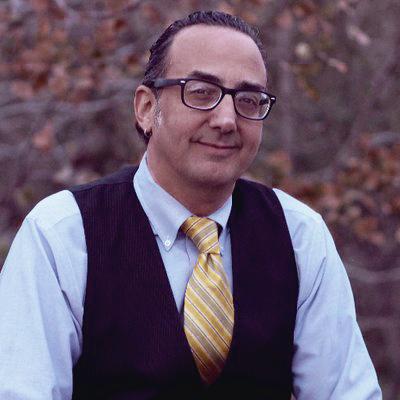
Vincent Schilling, Akwesasne Mohawk, is the founder and editor of Native Viewpoint. With nearly 20 years of experience as a Native journalist and former member of the White House Press Pool, Vincent works to uplift underrepresented voices in the world of media and beyond. Follow Vincent on YouTube.com/VinceSchilling, on Twitter at @VinceSchilling or on any other of his social media accounts by clicking on any of the icons below.
Support Native Viewpoint a Native multimedia website, by clicking here.